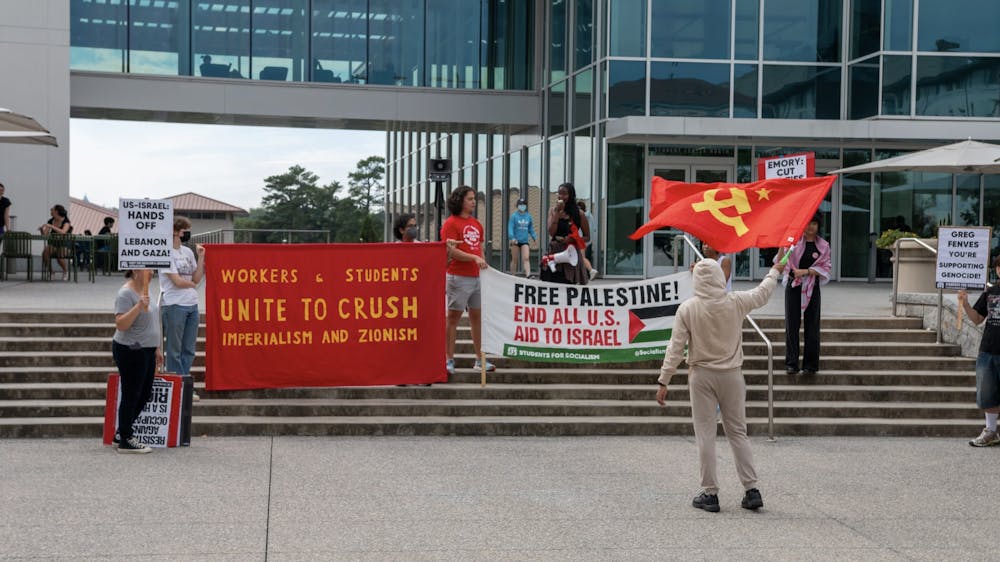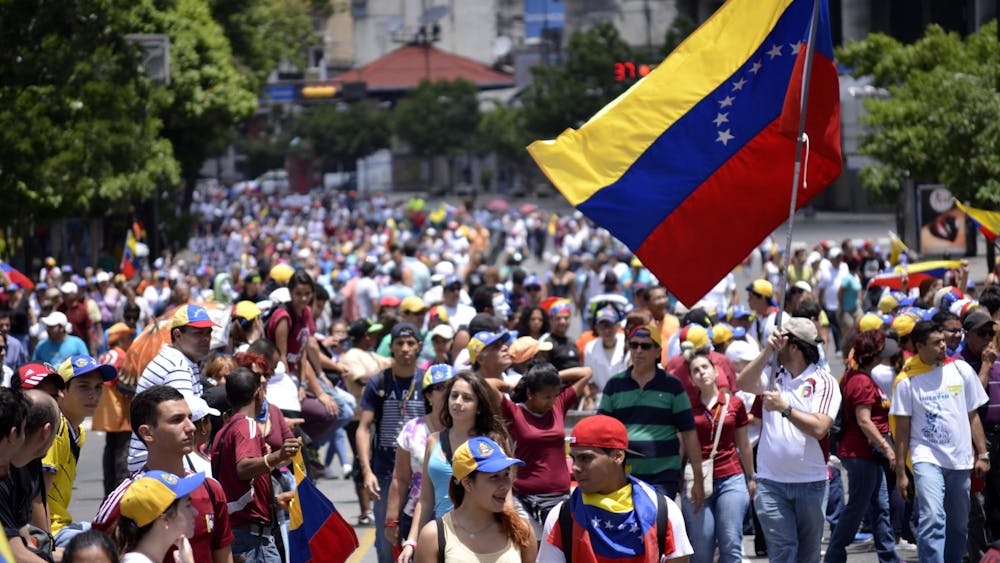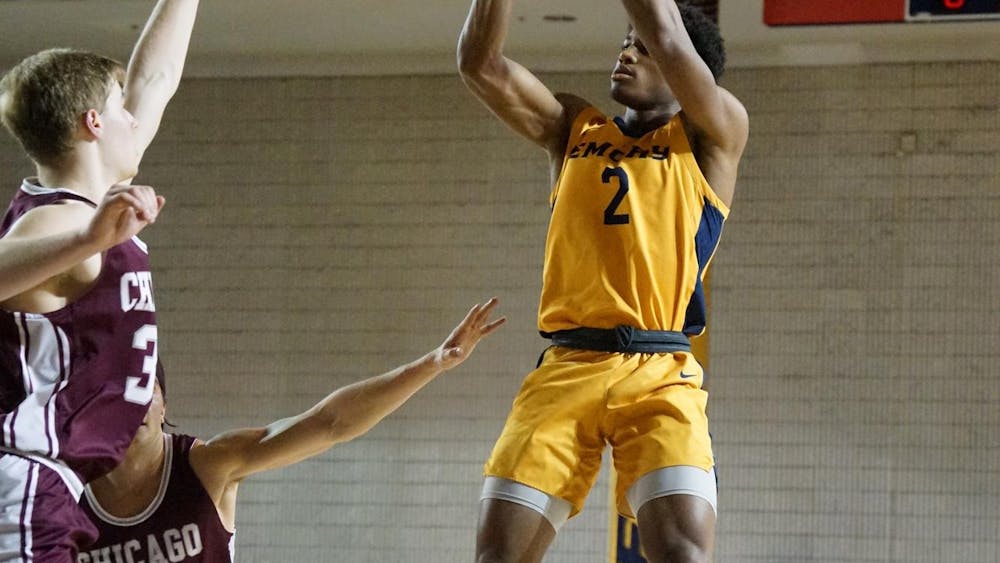As my senior year of high school came to a close, my mom sat me down. Her lips were pursed, her hands in her lap. The news played in the background. I knew what this was about. “You will not get arrested,” she told me, and I had nothing to say. In the corner of my eye, I watched disturbing images sear across the screen — protesters avoiding pepper balls while police shoved students and faculty to the ground on Emory University’s Quadrangle. Sitting beside my mom at that moment, I could not help but remember that my family had never heard of Emory before my acceptance, and the brutal scene on the news was their first glimpse of the university.
It became easier for me to envision myself demonstrating, against my mom’s wishes, as I saw more of these protests. I could picture myself on the Quad with a picket sign of my own. I was confident that I would have been willing to take a risk for the cause I believed in when I arrived at Emory the following year. After all, history looks kindly on people who sacrifice everything in the face of injustice. Alabama police officers imprisoned Martin Luther King Jr. for peacefully protesting bans on so-called “race-mixing” in the 1960s, and children now read his “Letter from a Birmingham Jail” in schools across the nation. Hans and Sophie Scholl, German students executed by Nazi Germany in 1943 for their protests against the regime, now have a memorial at the same university that once celebrated their arrest. It is easy to look at the sacrifices activists made in the past and believe that you, given the same opportunity to speak out against those injustices, would have done the same.
However, when I set foot on campus, I was not automatically the activist I expected to become. At first, I was convinced that this was a result of the lack of protests — we had seen demonstrations flare up in April, but by September, the University’s use of scare tactics suppressed most of the protests.
I saw no encampments on the Quad. I saw no students with picket signs. The uprisings of the previous semester had become less frequent and I told myself that my chance to raise my voice had diminished with them. I remember sighing, believing I was doing so out of disappointment. Now, I recognize it as relief.
When the protests resumed in mid-September, I started to make excuses to not join them. As an Oxford College student, I have to be intentional about commuting to Atlanta, and every protest during my first semester seemed to fall during what I deemed an inconvenient time. However, I do remember one day on the Atlanta campus when I stepped off the shuttle and saw a protest wrapping around the Emory Student Center. Demonstrators raised their signs above a sea of black and white keffiyehs, echoing chants shouted to them by an organizer. I did not think about joining. Instead, I ducked my head and rounded the corner without shame. I could hear my mom’s voice, ringing like a siren: “You will not get arrested.” With each protest I have walked by since then, those words continue to claw their way back into my head.
Courage is the overcoming of fear, and that is exactly what makes it so commendable. I see this courage in students like Cornell University’s (N.Y.) Momodou Taal, who protested for Palestine and recently left the United States after losing his visa. I think too of Emory’s own Umaymah Mohammad, a graduate student who the Emory Medical School suspended for a year for speaking out against a professor who had served in the Israeli Defense Forces. These are the people that our history textbooks will come to honor, people who have given up everything because they know what is at stake. Today, my news feed is flooded with stories of the Israeli army killing Palestinians, and it will never be just sadness that this brings. Now I crumple with guilt, the cruel reminder that I am unwilling to do anything to stop this violence.
But there are people around me who are more willing to take a risk. I think of a photo essay The Emory Wheel compiled during last April’s protests and the included shot of a faculty demonstration in which they called for solidarity with student protestors. I am proud to say that one of my professors is among them. I remember seeing the faces of my classmates during a demonstration a few weeks ago, exercising their right to call out the injustices we are all witnessing. I wish I were brave enough to stand alongside them. I am continuously inspired to maintain my beliefs by the people around me — I wonder where I would be without them. By refusing to take a stand, I reckon with the fact that I am not only failing those in Gaza but the people around me.
Earlier this academic year, I published an article about the importance of looking to history in order to avoid repeating our previous mistakes. I called for readers to protest for the change they want to see, but I am embarrassed to admit that I do not practice what I preach. I worry for Emory’s Class of 2029, wondering who their role models will be if protests fizzle out. I can only hope they will be inspired by the activists they read about in last April’s news, like I was. But, unlike me, I hope they can overcome any fears they have about demonstrating and inspire real change.
The next generation will turn to our generation for guidance on how to fight wrongs, just as we look to those older than us. It is so easy for us to jab a finger at many in the past and ask why they did nothing in the face of the events that defined their generation. We assume that we will be different and act when the time comes. That time is here, but I am sickened to realize that I am struck by the inaction I criticize in others. I hoped that we, as a generation, will learn from our mistakes, but I see that I am only mirroring the complacency I previously called for readers to resist.
Someday, I may be asked why I did not act during this pivotal moment in history. I do not think that I will have a response.
Contact Josselyn St. Clair at jmstcla@emory.edu









